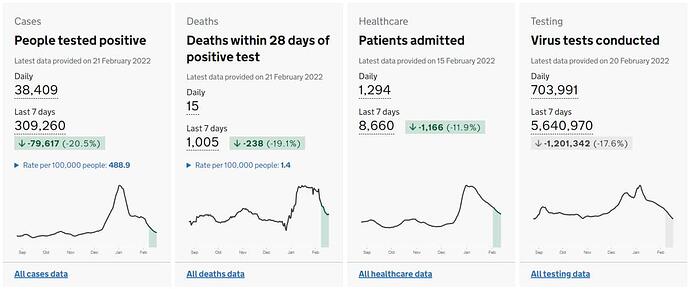Boris Johnson is due to set out his plans to scrap all remaining Covid legal restrictions in England, including the requirement to isolate. The prime minister is meeting the Cabinet this morning before updating MPs in the Commons. Mr Johnson said the end to restrictions will return people’s freedom and “mark a moment of pride as we begin to learn to live with Covid”. Speaking before Monday’s announcement, Mr Johnson said his plan would bring society “towards a return to normality” after “one of the most difficult periods in our country’s history”.
No 10 said the success of the Covid vaccination programme had put England in a “strong position to consider lifting the remaining legal restrictions”. It added that the pandemic was “not over” and the plan for living with Covid would take a “cautious approach”, which would retain “some surveillance systems and plans for contingency measures which can be stood up if needed to respond to new variants”.
The legal requirement to self-isolate for a fixed period after testing positive in England has been in place ever since mass testing was rolled out. Before that, most Covid testing was limited to people as they arrived in hospital with symptoms, so self-isolation was not an issue. Currently positive or asymptomatic people have to isolate for up to 10 days, but can end their isolation earlier if they register negative lateral flow tests on both days five and six. Mr Johnson has said that Covid testing would take place at a “much lower level” after revealing £2bn was spent on the system in January alone.
Community PCR testing for people with symptoms is expected to stop under the new plan, but it is unclear whether the availability of free lateral flow tests will be reduced.
But Prof Anthony Costello, professor of global health and sustainable development at UCL, told the BBC: “The worry about lifting the legal restrictions is that we are telling not only our population, but the world, that there is really nothing to worry about, that it’s all over when it isn’t.”
More later.







